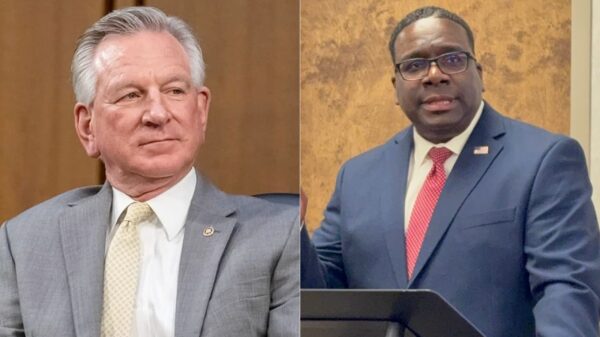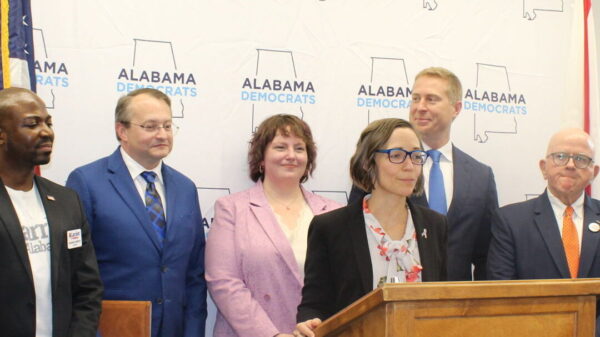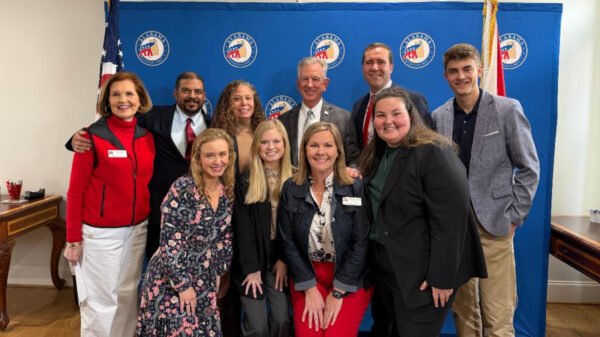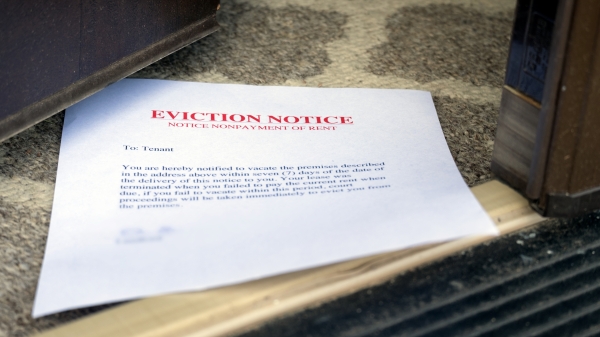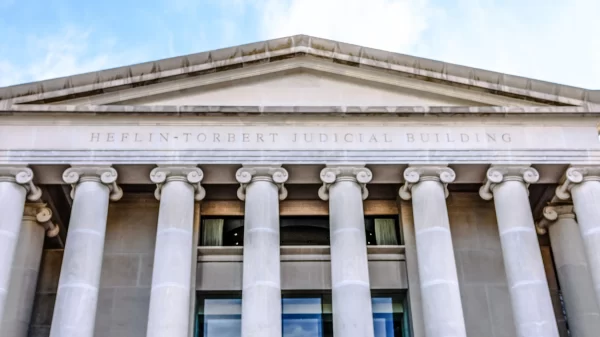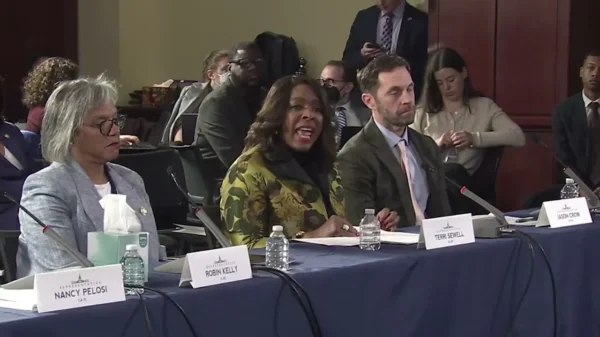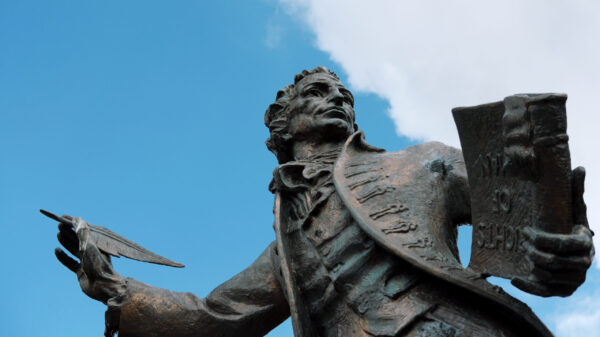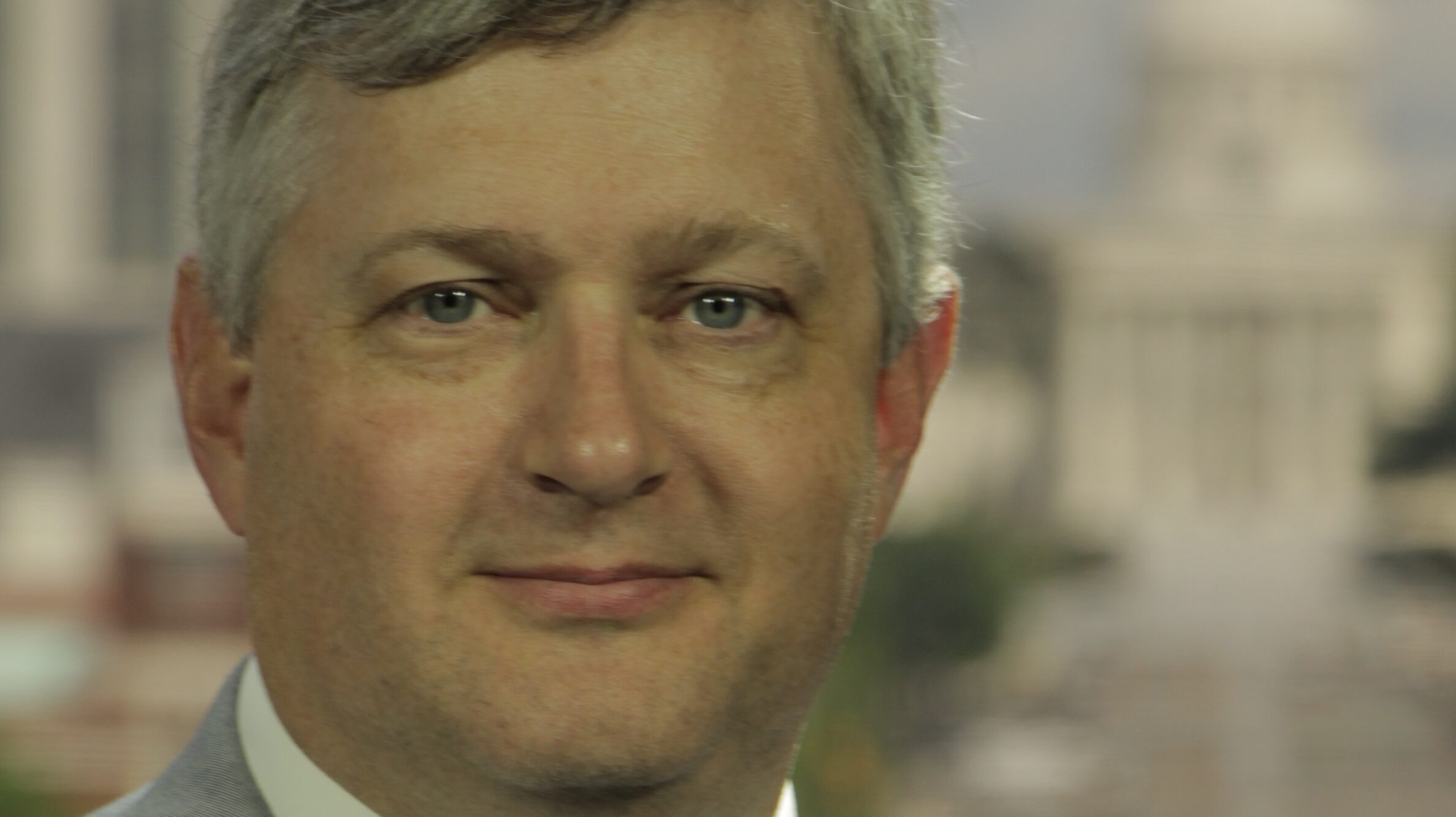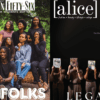During a radio appearance, Sen. Will Barfoot, R-Pike Road, responded to criticism of legislation prohibiting publicly funded institutions from maintaining Diversity Equity and Inclusion offices or programs. Senate Bill 129, which was sponsored by Barfoot, went into effect Oct. 1.
During an Oct. 14 interview on conservative talk show Right Side Radio, Barfoot claimed the legislation was a common-sense policy intended to prevent discrimination in state funded institutions like public universities.
SB129 defines DEI as any class, program, training or event, “where attendance is based on an individual’s race, sex, gender identity, ethnicity, national origin, or sexual orientation.” SB129 also prohibits the “promotion, endorsement, and affirmation of certain divisive concepts in certain public settings.” Concepts listed by the bill include, “That, by virtue of an individual’s race, color, religion, sex, ethnicity, or national origin, the individual is inherently racist, sexist, or oppressive, whether consciously or subconsciously.”
SB129 also requires institutions of higher education, “designate restrooms on the basis of biological sex; and to authorize certain penalties for violation.” SB129 has led to the closure of DEI offices at colleges across the state. University minority and LGBTQ+ advocacy groups have also been forced to restructure, or limit their activities on campus, to comply with SB129.
SB129 prompted the closure of on campus office spaces for The University of Alabama’s Black Student Union and Safe Zone an initiative that provides LGBTQ+ support and advocacy programs.
UA BSU President Jordon Stokes wrote in a statement on Instagram, “We are saddened by this loss—not just of a physical space, but of a place where we have gathered, shared, and built a community rooted in our shared experiences struggles and triumphs.”
The American Civil Liberties Union wrote that SB129, “is intended to have a chilling effect on discourse regarding race, class, sexuality, and national origin,” and argued that the law characterizes accurate discussion of these issues as “divisive.”
The ACLU wrote that “divisive concepts” bills like SB129 seek to limit discussions of systemic racism or sexism, and white or male privilege by claiming these discussions victimize some students with a sense of shame or guilt on account of their race or sex.
Concepts prohibited by SB129 include that an individual should assent to feelings of guilt for their race, religion, sex, ethnicity or national origin, or that they are responsible for past acts of those who share their identity.
Despite limiting advocacy organizations’ like BSU and Safe Zone’s ability to meet on Alabama’s university campuses, Barfoot claimed SB129 was intended to prevent discrimination at universities.
Barfoot claimed, “The fact of the matter is in the 1960s this might very well be the same type of piece of legislation that you know you would’ve seen from minority caucuses or civil rights type of legislation, because it is. It’s just saying, hey, we’re equal. Everybody’s equal and you can’t compel somebody, basically or force somebody, to assent to a divisive concept.”
Barfoot also claimed he did not understand criticism of SB129, saying the concepts it prohibits endorsement of seek to ensure no one is ostracized for their identity. “I had to challenge anyone, anyone out there, to say well this is you know this is not well founded,” Barfoot said of the bill’s list of concepts.
Barfoot said, “I had people who came at me who I know and am friends with, or friendly with, and they read news articles, and they said, ‘I can’t believe that you would advocate for something along those lines,’ and I said, ‘Like what?’ Like, you know, that we should treat everyone equal? We shouldn’t demean somebody because of their—because of their race and sex?”
“This is something we all ought to be behind,” Barfoot continued.
Right Side Radio host, Phil Williams alleged that the bill never intended to limit the activity of organizations like BSU, or that the closure of their office at UA was necessary. “Over the summer we saw like for instance the University of Alabama, they started shutting down some offices. Some of which it almost felt like they were doing a little bit out of spite,” Williams said in reference to the BSU office’s closure.
Williams asked Barfoot, “But nothing was ever designed to preclude somebody from existing on a campus, right?”
“That’s entirely right,” Barfoot responded, saying, “listen, we worked the best we could to make sure there were no unintended consequences.” Barfoot also commended Rep. Ed Oliver, R-Dadeville, for his work promoting anti-DEI legislation.
Oliver filed “divisive concepts” bills in 2022 and 2023, both of which passed in the Alabama House of Representatives, but weren’t voted on by the state Senate before the end of the legislative session.
During a Right Side Radio appearance in 2022, Oliver described the ideas his “divisive concepts” bills sought to restrict as, “The fact that a person is born a certain color determines what his outcome in life will be and that he can’t change that—we don’t believe that’s true. The fact that slavery was anything but an aberration, the fact that a child now should be blamed for something that happened generations ago—the things that are absolutely absurd to take from 200 years ago and try to translate to modern times and try to blame someone for.”
Barfoot highlighted a NAACP meeting he and Oliver attended to discussed SB129 before the bill’s passage. Barfoot said, “We had some good discussion, dialogue, and I think, you know quietly, there were a couple people who came up afterwards and said, ‘Hey I get where you’re coming from.’ Not publicly but privately.”

